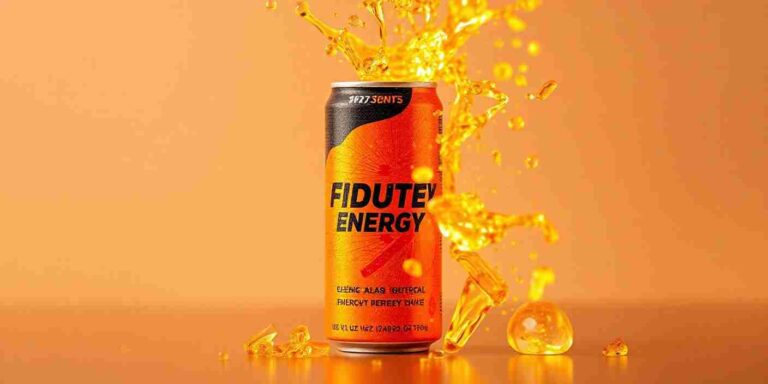Is Bang Bad For You? Risks, Benefits, and Expert Insights on Energy Drinks!
Is Bang Bad For You? Bang energy drinks can be bad for you, especially if consumed in excess. Packed with caffeine and other stimulants, these drinks promise an energy boost but often come with hidden risks.
You might love the rush they provide during workouts or long days, but it’s crucial to understand how they affect your body.
While occasional use may not pose a significant threat, regular consumption can lead to serious health issues like heart palpitations and anxiety.
As you navigate the world of energy drinks, knowing the potential downsides of Bang is essential for making informed choices about your health and wellness.
Let’s explore what makes Bang potentially harmful and explore safer alternatives that keep your energy levels up without the risks.
Key Takeaways
- High Caffeine Content: Each 16-ounce can of Bang contains 300 mg of caffeine, which is nearly the daily limit for most adults and can lead to increased heart rate and anxiety.
- Potential Health Risks: Regular consumption may result in serious health issues such as heart palpitations, insomnia, and dependence on caffeine, affecting overall well-being.
- Ingredient Awareness: Key components like amino acids and artificial sweeteners may have their own health implications. Understanding these ingredients is crucial for informed choices.
- Comparative Nutritional Profile: While Bang offers a lower calorie option compared to other energy drinks, its high stimulant content still poses significant safety risks.
- Hydration Concerns: High caffeine levels can lead to dehydration. It’s important to balance energy drink intake with adequate water consumption to mitigate this risk.
- Expert Recommendations: Health professionals advise monitoring your energy drink consumption and consulting with healthcare providers about potential interactions with medications or health conditions.
Understanding Bang Energy Drink
Bang Energy Drink has gained attention for its unique formulation and potential health impacts. It’s essential to understand what goes into each can of Bang to make informed choices about your energy drink consumption.
Ingredients and Composition
Bang Energy Drinks contain several key ingredients that contribute to their effects. Each 16-ounce can include:
- Caffeine: A significant source of stimulation.
- Vitamins: Essential vitamins play a role in overall health.
- Amino Acids: Ingredients like creatine and branched-chain amino acids (BCAAs) support muscle recovery.
- Coenzyme Q10 (CoQ10): This antioxidant helps with energy production in cells.
The drinks also include artificial sweeteners, such as sucralose, which may impact insulin function negatively.
Additionally, preservatives like potassium sorbate and sodium benzoate are present, raising concerns due to their potential effects on gene expression and inflammation.
Caffeine Content
Each can of Bang packs a hefty 300 milligrams (mg) of caffeine. This amount is roughly equivalent to three cups of coffee.
Such high caffeine levels can lead to increased heart rate, anxiety, or sleep disturbances for some individuals. It’s crucial to consider personal tolerance when consuming these drinks regularly.
Understanding the ingredients and caffeine content equips you with the knowledge needed for safer consumption choices regarding Bang Energy Drink.
Health Effects of Bang Energy Drink
Bang Energy Drink poses several health risks, primarily due to its high caffeine and stimulant content. Understanding these effects helps you make informed choices about consumption.
Short-Term Effects
- Caffeine Overload: Each 16-ounce can contain 300 milligrams of caffeine, nearing the daily limit of 400 milligrams recommended for most adults. This can result in:
- Increased heart rate and blood pressure
- Insomnia, disrupting sleep patterns
- Dehydration, leading to fatigue
- Restlessness, making it hard to relax
- Heart palpitations, feeling a rapid or irregular heartbeat
- Glycemic Response: The drink’s high sugar content may cause a quick rise in blood sugar levels, which is especially concerning for those not engaged in physical activities like weightlifting.
- Vitamin B Overdose: Excessive intake of B vitamins from multiple cans leads to potential issues such as:
- Increased blood pressure
- Interactions with medications, which could reduce medication effectiveness
Long-Term Effects
Regular consumption of Bang Energy Drink can contribute to more serious health concerns over time.
- Cardiovascular Issues: Continuous high caffeine intake increases the risk for heart problems like hypertension and arrhythmias.
- Dependence on Caffeine: Relying on energy drinks for energy may lead to dependence, resulting in withdrawal symptoms such as headaches and irritability when not consumed.
- Mental Health Concerns: High doses of caffeine are linked to anxiety disorders and increased stress levels over time.
- Metabolic Changes: Long-term use may alter your metabolism, impacting weight management and increasing the risk for conditions like diabetes.
Understanding these health effects equips you with knowledge that empowers safer choices regarding Bang Energy Drink consumption.
Comparisons with Other Energy Drinks
Bang energy drinks often compete with popular brands like Monster and Rockstar. While Bang offers a more favorable nutritional profile, it still contains high levels of caffeine and other stimulants that may pose health risks.
Nutritional Profiles
A 16-ounce can of Bang energy drink includes:
- 0 calories
- 0 grams of fat
- 0mg cholesterol
- 40mg sodium
- 85mg potassium
- 0 grams carbohydrates
- 0 grams fiber
- 0 grams sugar
- 0 grams protein
- 50% DV Vitamin C
- 25% DV Niacin
- 25% DV Vitamin B6
- 25% DV Vitamin B12
- 2% DV Magnesium
This profile stands out compared to many other energy drinks, which often contain high amounts of sugar and calories. For example, some Monster drinks can have over 200 calories and 54 grams of sugar per serving.
Safety and Risks
While Bang provides certain vitamins, the high caffeine content—300 mg per can—raises safety concerns.
Consuming too much caffeine can lead to issues such as heart palpitations or anxiety. It’s essential to consider these factors when choosing an energy drink.
While Bang presents a better nutritional option than many competitors, you must remain aware of the potential health risks associated with its consumption.
Expert Opinions and Research
Health experts and researchers have shared insights on the effects of Bang energy drinks. While some users enjoy positive experiences, others raise concerns about potential health impacts.
Studies on Energy Drink Consumption
Research shows that high caffeine levels in energy drinks like Bang can lead to dehydration. A 16-ounce can contain 300 mg of caffeine, which is significantly more than a typical cup of coffee, around 95 mg.
Dehydration from excessive caffeine may cause fatigue, headaches, and other health issues. Studies indicate that individuals who consume large amounts of caffeine without adequate water intake are at risk for these symptoms.
Additionally, studies highlight cardiovascular risks associated with high-caffeine beverages. Increased heart rate and elevated blood pressure occur in people consuming such drinks regularly.
Those with existing heart conditions should be especially cautious, as they might experience severe complications.
Recommendations from Health Professionals
Health professionals recommend monitoring your intake of energy drinks like Bang. Many advise limiting consumption to avoid adverse effects related to high caffeine levels.
It’s essential to balance energy drink intake with sufficient water consumption to reduce dehydration risks.
Experts also note the presence of additives like taurine and L-carnitine in Bang drinks. These ingredients can interact with medications or other substances you might take, leading to unexpected side effects. Always consult a healthcare provider if you’re unsure about how these ingredients might affect you.
Understanding these expert opinions helps create an informed approach towards consuming Bang energy drinks while considering both the benefits and risks involved.
Conclusion
Choosing to consume Bang energy drinks requires careful consideration of both benefits and risks. While they may provide an energy boost and have a more favorable nutritional profile compared to some other brands the high caffeine content raises valid health concerns.
Staying hydrated and monitoring your intake is essential to minimize potential side effects.
Consulting with healthcare professionals can help you make informed choices that align with your health goals.
Ultimately understanding how Bang affects your body will empower you to enjoy its benefits while safeguarding your well-being.
Make sure you prioritize your health above all else when deciding whether to include Bang in your routine.
Frequently Asked Questions
What are the main risks of consuming Bang energy drinks?
Bang energy drinks contain high levels of caffeine, which can lead to heart palpitations, anxiety, and dehydration. These risks are further heightened when combined with additives like taurine and L-carnitine.
How does Bang compare to other energy drink brands?
While Bang offers a more favorable nutritional profile than some brands, its significantly high caffeine content raises concerns about potential health effects. Always check labels for specific ingredients and caffeine amounts.
What do health experts say about Bang energy drinks?
Health experts recommend monitoring your intake due to the potential for side effects. They suggest balancing consumption with water and consulting healthcare providers if you have health concerns.
Can drinking Bang lead to dehydration?
Yes, the high caffeine content in Bang can contribute to dehydration. It’s essential to drink plenty of water alongside any caffeinated beverages.
Should I consult a healthcare provider before consuming Bang?
Consulting a healthcare provider is advisable if you have existing health conditions or concerns about how energy drinks might affect you, especially given their high caffeine levels.






